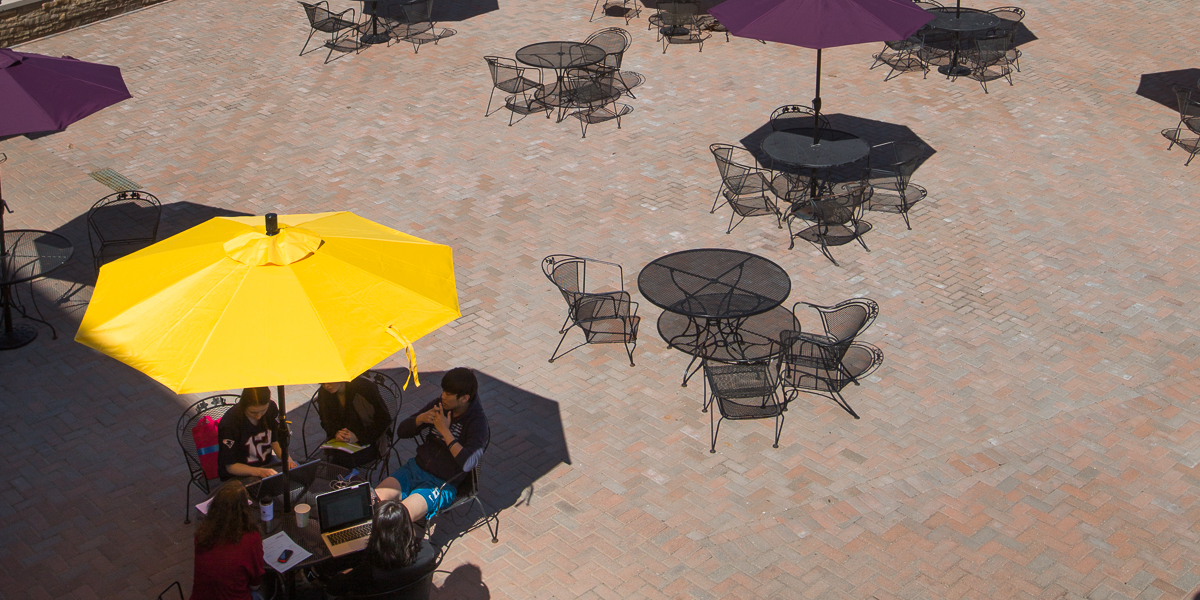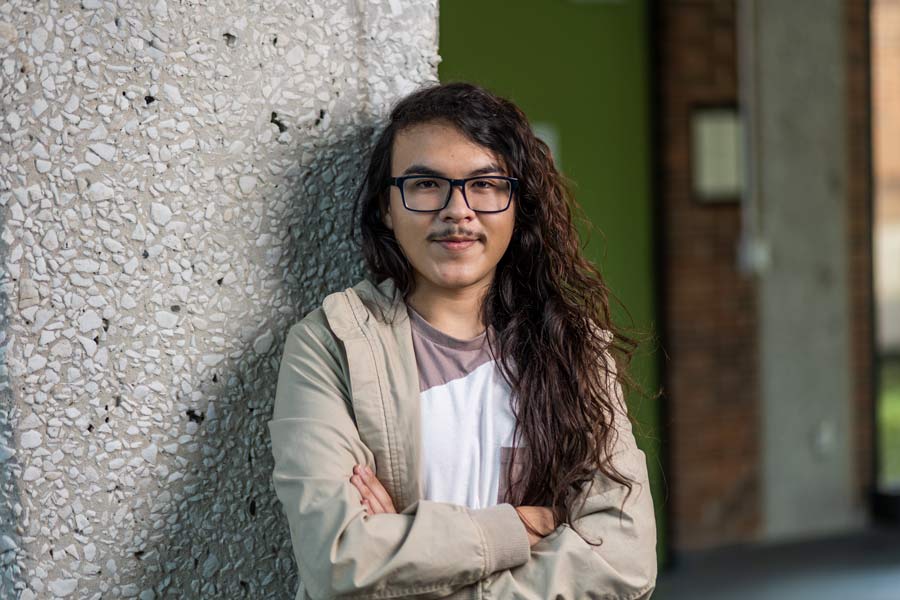

Venture Boldly

Chicago, Illinois
Major in Biochemistry, Minors in Creative Writing and Spanish Translation & Interpretation

Eric Espinoza, who is pursuing a minor in Spanish translation and interpretation, recently volunteered as an interpreter at the global summit for the It Gets Better Project remotely from Chicago. He also volunteers with CommunityHealth Clinic and the Immigrant Legal Advocacy Project. He was recently hired as an interpreter by Worldwide Languages.
How did you become interested in translation and interpretation?
I became interested in translation and interpretation when I took SPAN 205 Introduction to Translation and SPAN 222 Medical Interpreting with Professor Robin Ragan during fall 2020, a course designed to understand the Latinx culture and their traditions when it comes to medicine.
Sometimes, it’s funny looking back at the times when I would interpret or do sight translation for my parents when I was a kid because I made so many mistakes, but at the same time, I learned something about the interpretation field. Now, I don’t make many mistakes. As an interpreter, I make sure to interpret everything that is said and never add or omit things.
As of today, more hospitals and clinics than ever before are making sure to call in professional/certified interpreters, but the problem is that there aren't enough interpreters to fully serve the needs of these institutions and their patients. For this reason, some organizations or institutions like CommunityHealth Clinic have to rely on volunteers who have average/above average interpretation skills, so that when they are trained by other interpreters that work at CommunityHealth Clinic, the volunteers will be able to have strong interpretation skills.
How did you find out about opportunities for professional interpretation?
I found out about the interpretation opportunities through Professor Robin Ragan. She was the one that told me that the It Gets Better Project needed Spanish interpreters for their global summit. They specifically needed a volunteer who had experience with simultaneous interpreting and was LGBTQ+.
When she told me about this opportunity, I immediately said yes. When I got the volunteer job, I asked Professor Ragan for her help, because this job required simultaneous interpreting, and we never went over it in-depth in SPAN 222—Medical Interpreting, as we mostly did consecutive interpretation. (Simultaneous interpreters interpret during live events in sync with lectures and talks, whereas consecutive interpreters hear information and then subsequently relay it to the client in their language.) So we would practice for an hour daily over the course of two weeks.
What is it like to participate in this field? What do you do exactly?
Working as an interpreter looks very different depending on what type of interpretation it is, the setting, and if it’s in-person or over the phone. So far, most of my experiences have been remote due to the pandemic, but I also have experience interpreting in person.
Once it was time to interpret in-person at the International Association of Financial Crimes Investigators (IAFCI) Conference, I would sit all the way in the front [of the presentation], and I would interpret. I would take turns with another interpreter every 30 minutes, to ensure that we interpret everything correctly. After we were done interpreting, we would meet up with the other interpreters, and they would give me advice and let me know about the pros and cons of the field. They were all much older than me with many years of experience.
In the beginning, I felt out of place being young and relatively inexperienced, but the interpreters I worked with there were great people, and they always included me in their conversations. Every day we would eat breakfast, interpret, get lunch, then continue interpreting. Now, participating as a medical interpreter is different; there are different rules to follow, and the interpretation is usually consecutive.
How does this work you are doing now relate to your area of study and potential career post-graduation?
I would love to continue interpreting in the future. I plan on getting my certification as a medical interpreter soon because it’ll just open up more opportunities for me. I plan on going to medical school after graduating from Knox, and being a medical interpreter gives me the opportunity to talk to doctors and patients. Because of this opportunity, I am knowledgeable on several topics, diseases, treatments, symptoms, and how to appropriately talk to a patient.
How do you predict that this experience will impact you as you continue your studies at Knox?
I believe that all of these experiences have shaped the young professional interpreter that I am today, and there is still so much growing to do. Professor Ragan has been one of the best professors I have had at Knox. Not only is she forwarding emails to students with amazing opportunities, but she also reaches out to help or to simply check in on how we are doing. I really appreciate the fact that she spent her own time helping me develop and shape my skills as an interpreter.
What would you say was your biggest takeaway? What did you learn?
I learned that if one takes advantage of an opportunity, regardless of how small it looks, it will always help you in the long run. For example, I started out taking interpretation courses at Knox, then moved to volunteering jobs, and then grew to interpreting at huge conferences, and getting paid for my interpretation services. I always try to go above and beyond, and it is growth like this that makes me see that my hard work is paying off. So, get out there, search for those opportunities, talk to your professors, and remember that every small opportunity is your ticket to a bigger one!